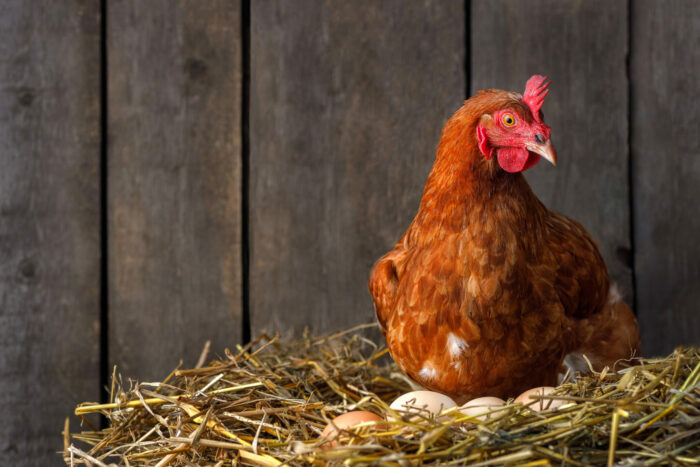
By Pam Wright
Local Journalism Initiative Reporter
Chatham-Kent council has finally scratched out the initial framework for an urban backyard chicken pilot project.
Following a lengthy discussion, council approved a motion by South Kent Coun. Ryan Doyle at a recent meeting. Now the matter goes back to administration to prepare a bylaw for council’s approval.
Doyle said approving the pilot was a chance to give the people what they want, given the overwhelming response of a 2023 Let’s Talk C-K survey which saw 5,000 people respond. Around 68 per cent of those were in favour of allowing backyard chickens in urban areas. There are no restrictions on raising chickens in agricultural areas.
The urban backyard chicken issue has been on the municipality’s radar for a number of years, with council turning down such proposals in 2013 and 2020.
Last year, the issue was raised again, with council directing administration to report on the matter. When administration returned, they had outlined three possible approaches including maintaining the status quo, instituting a pilot project or incorporating a permanent urban chicken program.
Results of a public meeting held last summer were also outlined in the report, at which time area poultry farmers and the Kent Federation of Agriculture voiced their collective opposition, saying it could lead to the spread of a catastrophic disease such as the avian flu.
The issue prompted more discussion, as well as many questions to Nancy Havens, C-K’s manager of licensing. When speaking to council, Havens cautioned officials about proceeding with an urban backyard chicken program. She said the Town of Tecumseh discontinued its backyard chicken program after two years due to noise, animal welfare and smell.
According to Havens, a pilot project is likely to become permanent as it would be difficult to halt it once it gets going.
However, she said a pilot will allow the municipality to “crawl before we walk, “noting there are significant costs associated with the enforcement and inspection.
A staff report estimated a municipal-wide urban backyard chicken program via Pet and Wildlife Rescue (PAWR) would cost $87,650 for enforcement and close to $400,000 for coop inspections annually. Figures for rural residential and village residential enforcement and inspection are $13,000 and $43,000 respectively.
East Kent Coun. John Wright, an advocate of maintaining the status quo, told council that poultry farmers are worried about disease, as it could lead to quarantine and the preventative eradication of entire flocks.
“There’s quite a risk with the bird flu, if it does ever get into a flock,” he said, adding there are strict rules around the disposal of birds.
Other councillors unsuccessfully lobbied for a C-K wide pilot, including North Kent’s Rhonda Jubenville and Chatham Coun. Brock McGregor.
McGregor said restrictions based on property size are inequitable, putting backyard chickens out of reach for residents who may need it.
“I don’t know if we know on the fly what the best size is,” he said.
Ultimately, the project will allow backyard urban chickens in rural residential and village residential areas on properties over a half an acre in size. Based on Doyle’s motion, the suggested rules may include:
- Chickens must remain on the owner’s property and if there is no fence, the birds must stay in the coop.
- No roosters.
- A minimum setback from the property line.
- Feed must be stored in a rodent-proof container.
- A one-time application and fee. Before a person sets up a coop. a bylaw officer will inspect the yard and coop, but officers will not return unless there is a complaint.
- A limit of the number of chickens depending on the size of the property.
- A demerit point system for infractions.
The timeframe for the pilot is still undecided. PAWR will be contracted for enforcement and inspection services.
Havens said she will explore best practices from other urban backyard chicken programs in Ontario municipalities when developing C-K’s guidelines.
Another public meeting to review the bylaw will also be necessary, at which time deputations will be allowed.






